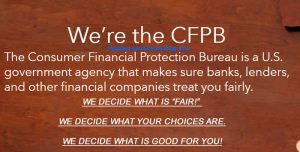As in everything in life, there is a caveat to this “Payday Loan Report.” That is, I’m referring to single-payment loan products. This is an important distinction because the payday loan industry has been evolving away from “payday loan single-payment” loan products to installment loan products for the last several years.
Example: ENOVA, a publicly traded “payday loan company did roughly $300M in loans last quarter. Of that, approximately 12% was a “payday loan” product. That’s down from 4-5 years ago when the “payday loan” product exceeded 70% of their loan volume. Installment loans tend to have larger loan principals and somewhat longer payback periods. This is the industry trend!
Additionally, some states report fewer loan transactions. As if “business is down.” That’s not accurate. The state’s rarely account for internet generated payday loan/installment loan/line-of-credit loan volume. AND, they completely ignore the tribe model!
What is a Payday Loan?
A payday loan is a small amount, short-term loan. The consumer must either provide the
lender direct access to their checking account or write a post-dated check for the loan
amount plus a fee based on the original loan amount.
Typical Payday Loan Terms
The terms for payday loans are determined by the licensing model implemented by the Lender.
Many Lenders employ the State license model.
As an example, here are the legal payday loan fees allowed in the state of Washington.
- Minimum Loan Term: a due date on or after the date of the borrower’s next pay date. If a borrower’s next pay date is within
seven days of taking out the loan, a licensee must set the due date of a small loan on or after the borrower’s second pay date. - Maximum Loan Term: 45 days, unless the term of the loan is extended by agreement of both the borrower and the licensee and no additional fee or interest is charged
- Maximum Loan Amount: $700, or thirty percent of the gross monthly income of the borrower, whichever is lower
- Maximum Fee: 15% on the first $500. 10% on the amount greater than $500
- Example: A loan for $500 + $75 fee = $575 repaid. A loan for $700 + $95 fee = $795 repaid.
On the other hand, California law specifies a maximum loan principal of 15% of the amount of the loan. [Basically, that’s $17.66 per $100 loaned.]
Florida payday loan laws specify 10% of the amount of the loan principal with a $5.00 first-time application fee.
The Tribe Model payday loan fees vary also. The average fee charged a consumer by a Native American federally recognized tribe is typically $20 – $30 per $100 loaned.
The Texas CAB/CSO model does not dictate minimum payday loan fees.
Payday Loan Borrowers’ Rights
In some states, payday loan borrowers are entitled to an installment plan at any time prior to default. Borrowers do not have to pay a fee for the installment plan and have from 90 to 180 days (depending on the original loan amount) to repay the loan in a series of installments.
Tribe payday loan lenders often offer various installment plans as well. This policy and the fees are prescribed by the TLE [Tribal Lending Enterprise].
The average payday loan is $392.




